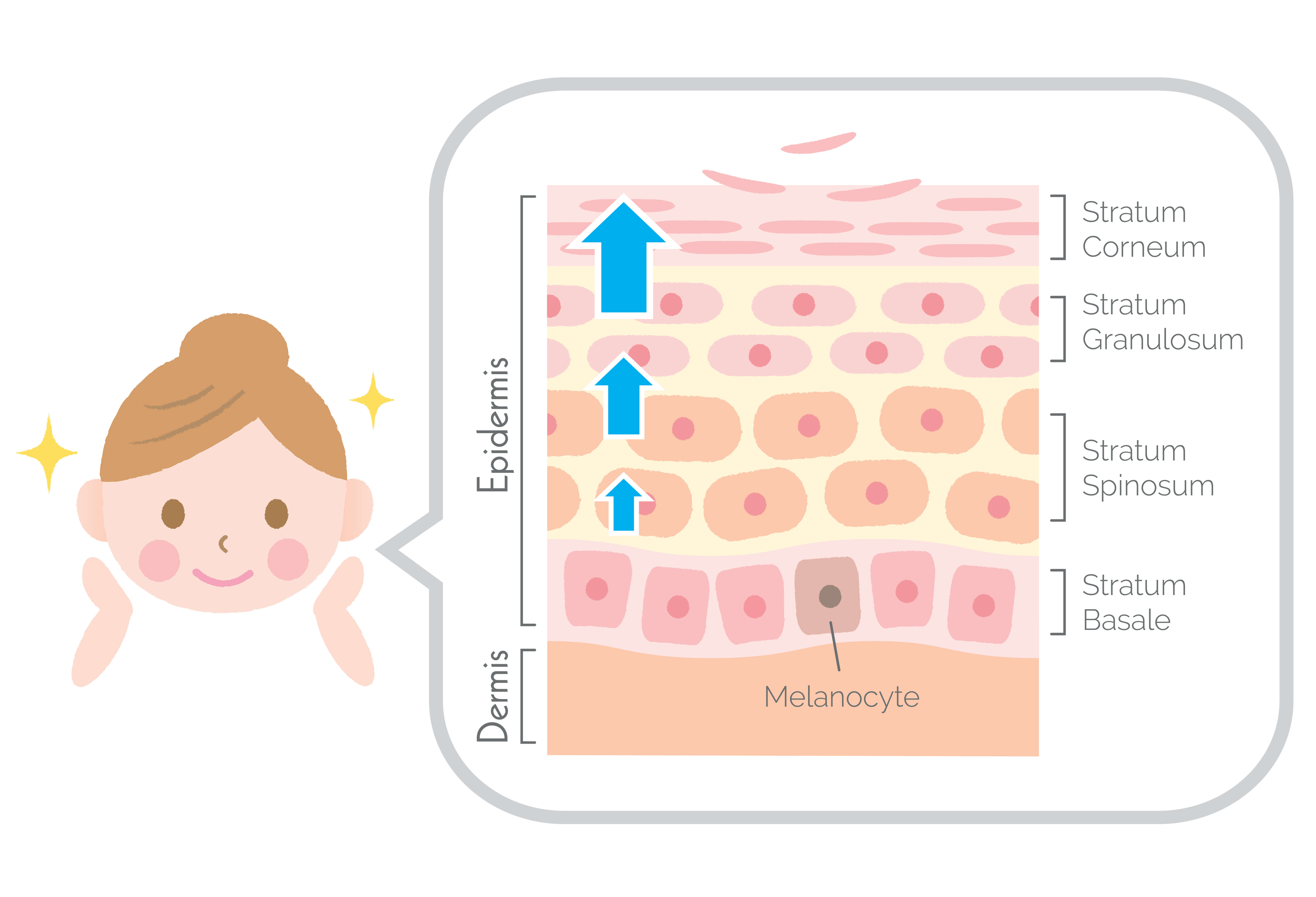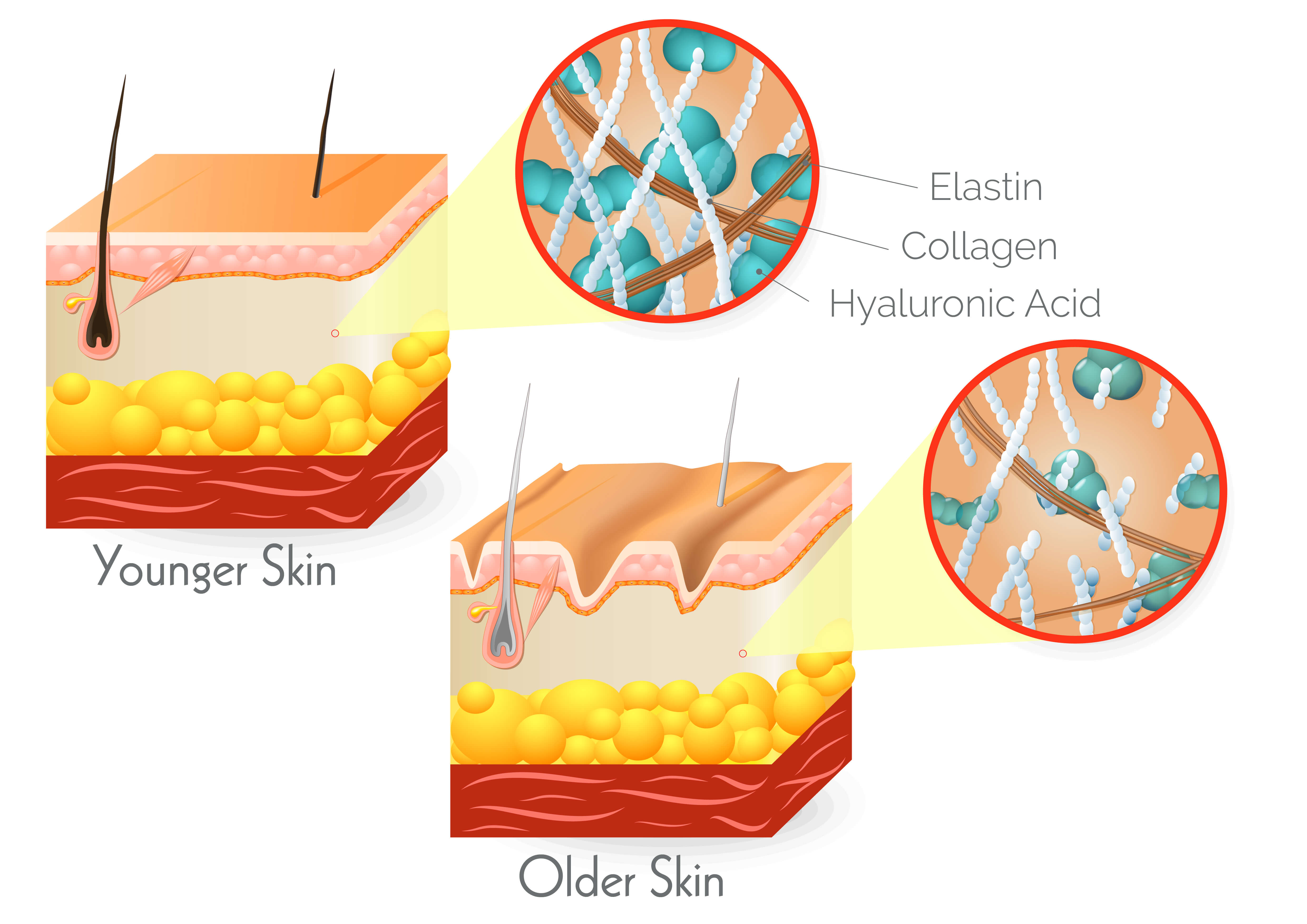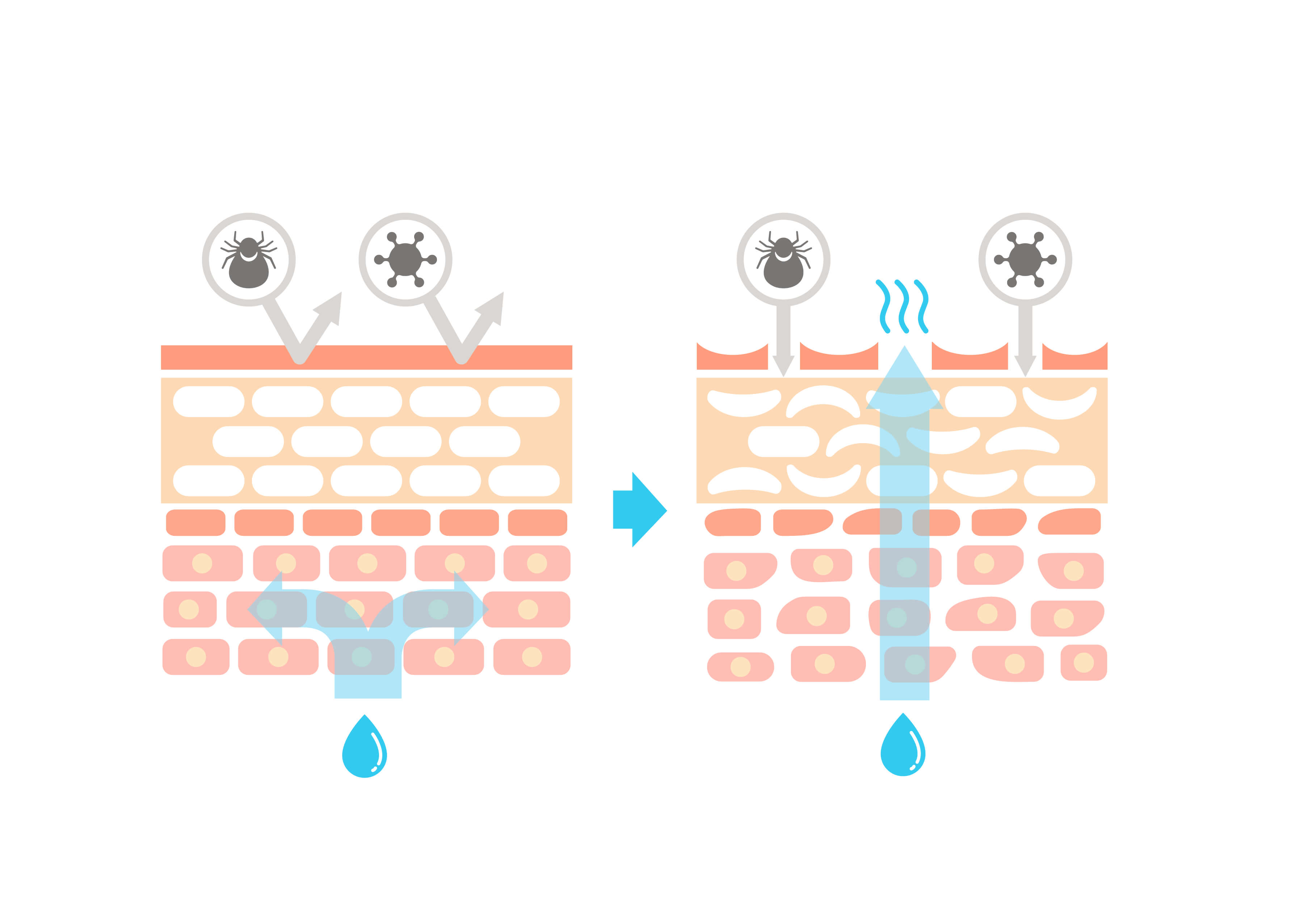It is no secret that as your body ages, your skin is going to go through quite a few changes, with your skin in your 20’s being extremely different to your skin in your 50’s.
This is why it is so important to keep adjusting your skin care routine as you progress through life, adopting different ingredients and techniques at each stage, as this will help to cater to your skin’s ever-changing needs.
Skin Care in Your 20’s
When you are in your 20’s, it may seem as though the firm and tight skin you have always known is going to last forever, but, unfortunately, this is not true.
In fact, your 20’s is when things begin to slow down in your skin…
In particular, cell turnover.
This is the rate at which your body sheds its old skin cells, to make way for new ones. In your teens and younger years, your cell turnover rate is every 14 days. However, as you progress through your 20’s, this declines to every 24 to 30 days.

Collagen is another key element of your skin that begins to decline in your mid-20’s.
What is collagen?
It is one of the building blocks of your skin, and is the protein that largely makes up your skin’s structure. Once you reach your mid-20’s, the rate at which the collagen in your body breaks down overtakes the rate at which you naturally produce new collagen.
This means that skin aging is not too far away…
So, what can you do about this?
Well, seeing as up to 90% of facial wrinkles are caused by the sun’s UV rays, wearing sun cream is essential. If you are not already doing this every day, then this is something to begin doing right now.
When it comes to your declining collagen production and slower cell turnover…
Start using a retinol product.
Retinol is a derivative of vitamin A, and is one of the most potent anti-aging ingredients out there, with one of its greatest benefits being the way in which it speeds up cell turnover. Not only that, but it also stimulates your natural collagen production, helping to increase this so that production once again outweighs breakdown.
Skin Care in Your 30’s
While you may have been completely confident in your skin in your 20’s, you are much more likely to experience a few panicked moments in relation to your skin in your 30’s.
This decade tends to be the one where you experience your first static lines and wrinkles.
These are lines that do not fade when your face is resting, and are usually due to the continued decrease of collagen in your body.
If you are not yet using a retinol product, then now is the time to start, for the same reasons as mentioned in the 20’s section before.
Another key component in your skin that begins to noticeably decline in your 30’s is hyaluronic acid.
You may have already noticed this ingredient in many skin care products out there, but do you know what it actually is?
Hyaluronic acid is a molecule that occurs naturally in the body, and can be found in so many different parts of the body. So, when your natural levels of hyaluronic acid begin to decline, it only makes sense to top these back up.
But what exactly does hyaluronic acid do for the skin?
Well, this ingredient is a humectant, meaning that it draws moisture from the air into its molecules and then holds this water there. Your skin then absorbs this moisture, helping it to stay hydrated for longer.
Hyaluronic acid can also help with:
- Wrinkles
- Sagging skin
- A damaged skin barrier
- Wound healing
- UV damage
Hyaluronic acid can be found in everything, from serums to creams. The most effective tends to be a serum, as their thin consistency means that they are more easily absorbed by the skin.
When choosing a product, make sure that it contains at least 1% hyaluronic acid, as this is the amount needed in order for the ingredient to really have an impact.

How else can you care for your skin in your 30’s?
By incorporating antioxidants into your skin care routine.
Your skin is constantly under attack from free radicals, which are caused by everything from sun exposure to pollution. Simply put, free radicals are atoms that are missing an electron. In order to “heal” themselves, they will try to steal electrons from nearby cells, thereby damaging those cells, as well as their DNA.
Free radicals are one of the primary causes of aging, which is why this is something worth focusing on.
How do antioxidants help?
They provide free radicals with the electron that they are missing, therefore healing them and stopping them from attacking other cells in the body.
So, which antioxidants should you be using?
In addition to retinol, give these a try:
- Resveratrol – this is an antioxidant that comes from plant-based foods, such as red wine, blueberries and cacao beans, and provides so many benefits for the skin, from brightening to anti-inflammatory
- Vitamin C – helps to strengthen the skin, while calming and hydrating it
- Vitamin E – protects the skin from multiple forms of stress. Look for a natural, rather than a synthetic, form, as these have shown to be more powerful and longer-lasting
Don’t forget…
Antioxidants work best when used in conjunction with each other, so try adding multiple antioxidants to your skin care routine.
Skin Care in Your 40’s
Those light lines that you noticed appearing on your face in your 30’s will begin to deepen in your 40’s, making them much more noticeable.
All of the natural declines from your 30’s, such as collagen production and hyaluronic acid, continue on, with cell turnover also decreasing down to every 30 to 42 days. You will notice that your skin feels much less resilient, and that it does not “bounce back” in quite the same way anymore.
Another common skin change that many experience in their 40’s is dryness…
Wondering what causes this?
The outer layer of your skin consists of a protective barrier, whose role is not only to protect your skin from environmental damage, but also to retain moisture.
As the body ages, this barrier weakens, meaning that your skin experiences a far greater loss of moisture.

Fortunately, there is an easy way to deal with this, and this is by switching to a much richer and thicker moisturizer. You may also need to moisturize more frequently throughout the day, in order to compensate for the extra moisture loss.
Another skin issue that may arise in your 40’s is hyperpigmentation.
This is when melanin, which is the pigment that gives your skin its color, is over-produced in some areas of the skin, causing those areas to darken. This can vary greatly in terms of shape and size, as well as placement on the skin.
Here are a few tips on how to deal with this:
- Use a sunscreen – UV exposure only encourages your skin to produce more melanin, which you are trying to prevent
- Use a gentle chemical exfoliant – this helps to speed up the cell renewal rate
- Use a lightening cream – such as one containing kojic acid or hydroquinone
One key ingredient that you should be using in your 40’s are ceramides…
These are naturally one of the main components of your skin’s surface, and are an integral part of your skin’s matrix and structure.
However, with age, the body’s natural production of ceramides declines, meaning that the skin then begins to lose its firm structure and supple surface.
Research shows that the topical use of ceramides can really help with this, improving suppleness, roughness, uniformity, hydration and overall glow.
Skin Care in Your 50’s
Once you have gone through menopause, your skin will be experiencing even more drastic changes.
Due to the drop in estrogen levels, the skin becomes much thinner and more fragile, meaning that it is even less able to retain moisture.
Not only that, but research shows that, in the first five years after menopause, 30% of your collagen is lost.
This may sound frightening, but there are still several steps that you can take to keep your skin looking youthful and healthy.
Begin by making sure that you are already following all of the tips mentioned in each section above. While you may not be able to reverse your skin’s changes, you will still be able to brighten and nourish the one you have, preventing the changes from worsening.
A multi-step skin care routine is vital, and this should be something that you follow each and every day.
Wondering what the multiple steps should consist of?
Here are some guidelines:
- A cleanser – this should always be the first step of any skin care routine, as it allows subsequent products to easily penetrate into the skin and work much better
- A toner – this helps to rebalance your skin’s pH level, which is often disrupted through cleansing
- Exfoliant/peel – this is important to keep the surface of your skin looking smooth and vibrant. It will also encourage your natural cell turnover
- Masks – these can be used on a weekly basis to give your skin a deeper treatment. Look for masks that address your specific skin concerns, whether this may be hyperpigmentation, wrinkles, or dry skin
- Eye serums and creams – the skin around your eyes is so delicate, and eye products are formulated to be gentle enough to nourish and care for this area without harming it
- Face serums – serums are thin and lightweight, meaning that they quickly and easily penetrate the skin. While they may not look much different to water, serums are actually packed with a high concentration of active ingredients, which is why they are so effective at tackling various skin issues
- Moisturizer – as mentioned above, the moisturizer you are using now should be rich, thick, and packed with antioxidants
Skin Care in Your 60’s and Beyond
If you have worked out a skin care routine that is working for your skin in your 50’s, then stick to it through your 60’s, adjusting and adding in individual products when needed.
If you have been caring for your skin well throughout your life, then, by the time you reach your 60’s, you will be able to tell what your skin does and does not need.
One example of a product that you may want to add into your routine at this stage in life is targeted wrinkle creams. These are potent formulas that come with a small applicator that enables you to directly apply them to each wrinkle.
Of course, skin care is internal as well as external, and caring for your skin from within can really help to maintain a healthy glow throughout your later years.
How can you care for your skin from within?
Here are a few tips:
- Diet – make sure that you are consuming a healthy diet, filled with plenty of fresh, whole foods, and with a minimum amount of processed foods
- Sleep – adequate quality sleep is so important, although you may find that you need slightly less sleep as you age
- Exercise – exercise is one of the best things that you can do for your skin, no matter what age you may be
- Stress – stress leads to nothing but problems in the skin, so try to find some stress management techniques that work well for you

By understanding the changes that your skin goes through as your body ages, you will be able to provide it with exactly what it needs. From the preventative steps that you can take in your 20’s, to the healthy lifestyle changes you can make in your later years, it is well worth taking the time to keep your skin healthy, no matter what age you may be.








